
Mayumba National Park: A Sanctuary of Pristine Beauty
Mayumba National Park is a hidden gem located in Gabon, West Africa. This coastal park is renowned for its untouched beaches and rich biodiversity. Visitors can witness the incredible spectacle of leatherback turtles nesting on the shores, making it a must-visit for nature enthusiasts. The park stretches along the Atlantic coast and offers a unique blend of marine and terrestrial ecosystems. Its waters are home to playful dolphins and migrating humpback whales, providing thrilling opportunities for wildlife spotting. On land, the park's dense forests are teeming with diverse bird species and other wildlife. Mayumba National Park also holds cultural significance, with local communities living in harmony with their natural surroundings. Tourists can engage with the local culture, enjoy traditional music, and savor the flavors of Gabonese cuisine. The park's remote location ensures a serene and unspoiled environment, perfect for those looking to escape the hustle and bustle of modern life.
Local tips in Mayumba National Park
- Visit between November and April to witness the nesting of leatherback turtles.
- Bring binoculars for bird watching; the park is home to many rare species.
- Consider a guided tour to learn about the local culture and wildlife.
- Pack light but include essentials like sunscreen, insect repellent, and sturdy walking shoes.
- Respect local customs and engage with the community to enhance your experience.
Mayumba National Park: A Sanctuary of Pristine Beauty
Mayumba National Park is a hidden gem located in Gabon, West Africa. This coastal park is renowned for its untouched beaches and rich biodiversity. Visitors can witness the incredible spectacle of leatherback turtles nesting on the shores, making it a must-visit for nature enthusiasts. The park stretches along the Atlantic coast and offers a unique blend of marine and terrestrial ecosystems. Its waters are home to playful dolphins and migrating humpback whales, providing thrilling opportunities for wildlife spotting. On land, the park's dense forests are teeming with diverse bird species and other wildlife. Mayumba National Park also holds cultural significance, with local communities living in harmony with their natural surroundings. Tourists can engage with the local culture, enjoy traditional music, and savor the flavors of Gabonese cuisine. The park's remote location ensures a serene and unspoiled environment, perfect for those looking to escape the hustle and bustle of modern life.
When is the best time to go to Mayumba National Park?
Unmissable attractions to see
Panga
Explore Panga in Tsagui, a serene tourist attraction offering stunning landscapes, vibrant culture, and a perfect escape into nature's beauty.

Carrefour St Antoine
Explore Carrefour St Antoine in Mayumba, Gabon: Hike through lush trails, discover vibrant wildlife, and immerse yourself in serene natural beauty.

Kakamoeka
Discover Kakamoeka: Explore dramatic gorges, stunning waterfalls, and lush forests in this hidden gem of Congo-Brazzaville.

Essential places to dine
La Sauce Créole Restaurant
Experience authentic Gabonese cuisine at La Sauce Créole Restaurant in Libreville – where vibrant flavors meet warm hospitality.
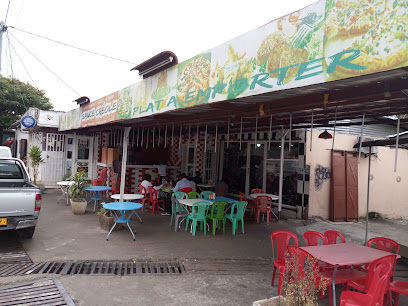
Beach Club
Experience exquisite French and African cuisine at Beach Club in Libreville, where stunning coastal views enhance your dining adventure.
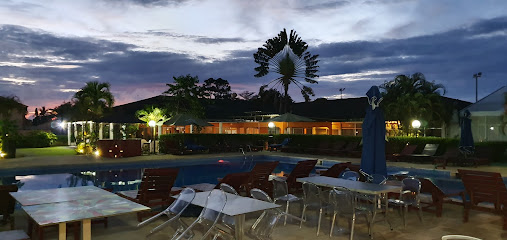
Lamaia Lounge Bar & Restaurant
Experience the best of French steakhouse dining at Lamaia Lounge Bar & Restaurant in Libreville, where exquisite flavors meet vibrant ambiance.
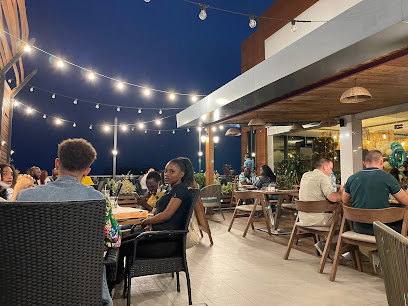
Delektable
Experience the vibrant flavors of Gabon at Delektable in Libreville - where great food meets an inviting atmosphere.
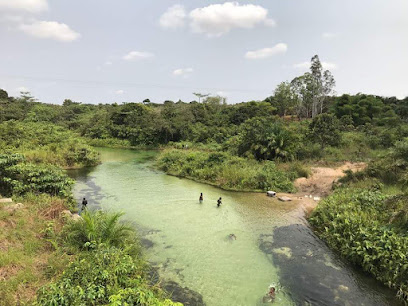
Roma Restaurant & Hotel
Discover authentic Italian flavors at Roma Restaurant & Hotel in Libreville—where fine dining meets comfort in Gabon.
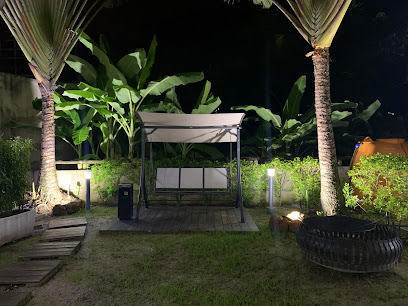
Amigo's Restaurant
Discover the vibrant flavors of Gabon at Amigo's Restaurant in Libreville, where local cuisine meets international tastes.
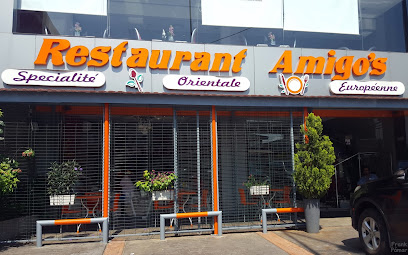
L'Odika
Experience authentic African cuisine at L'Odika in Libreville - where every dish tells a story.
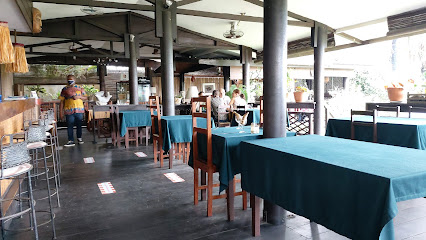
Restaurant Le Mississipi
Discover the taste of Gabon at Restaurant Le Mississipi – where local cuisine meets vibrant atmosphere in Libreville.
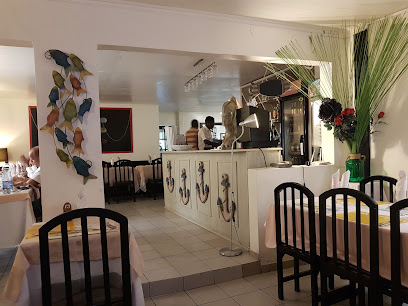
Restaurant LYNN'S
Experience authentic Gabonese cuisine at Restaurant LYNN'S in Libreville—where flavor meets tradition in every bite.
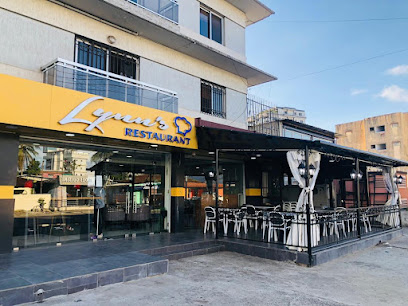
River Lodge Resort
Discover tranquility at River Lodge Resort in Point Denis – where stunning views meet exquisite dining in an idyllic tropical setting.
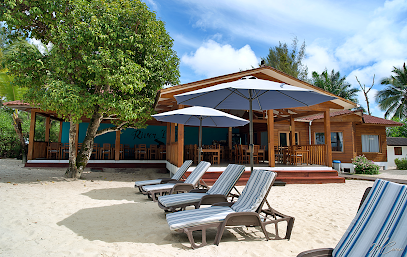
Restaurant Nouveau Petit Chalut
Discover authentic Gabonese cuisine at Restaurant Nouveau Petit Chalut in Libreville – where local flavors meet international flair.
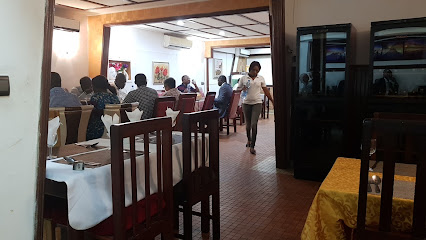
Joe's Restaurant & Bar
Experience authentic Gabonese cuisine at Joe's Restaurant & Bar in Port-Gentil - a culinary haven blending local flavors and vibrant atmosphere.
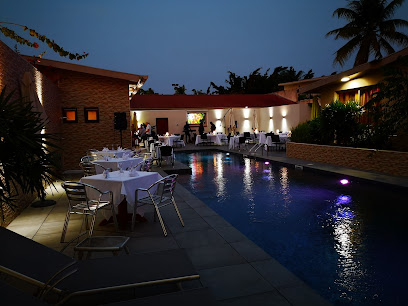
Idiora Restaurant-Bar
Savor delectable dishes and vibrant ambiance at Idiora Restaurant-Bar in Libreville - where local flavors meet international flair.
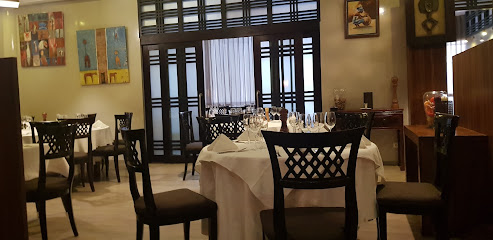
Restaurant la polinette sainte CLAIRE
Discover authentic Gabonese flavors at Restaurant la Polinette Sainte Claire in Libreville's vibrant Quartier Louis.
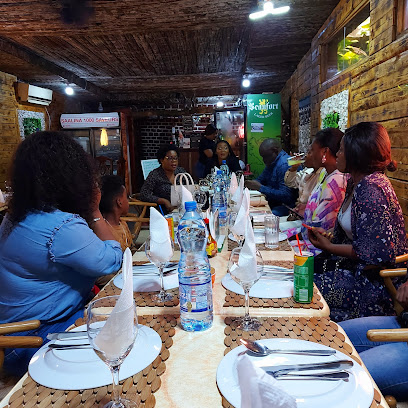
Le Palais Damine
Savor authentic Moroccan cuisine at Le Palais Damine, where rich flavors meet warm hospitality in Libreville.
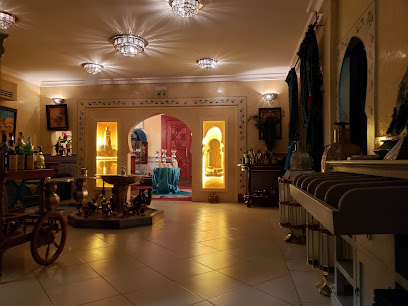
Markets, malls and hidden boutiques
Mayumba Balise
Explore the vibrant world of textiles at Mayumba Balise, a premier fabric store in Port-Gentil showcasing local craftsmanship and diverse fabrics.
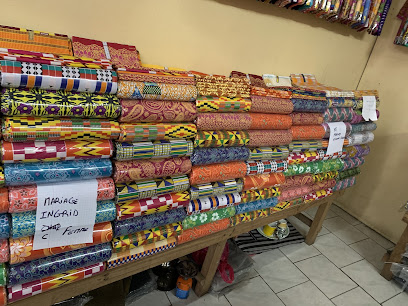
Boutique La patience
Explore the vibrant styles at Boutique La Patience in Pointe-Noire, where local craftsmanship meets contemporary fashion.
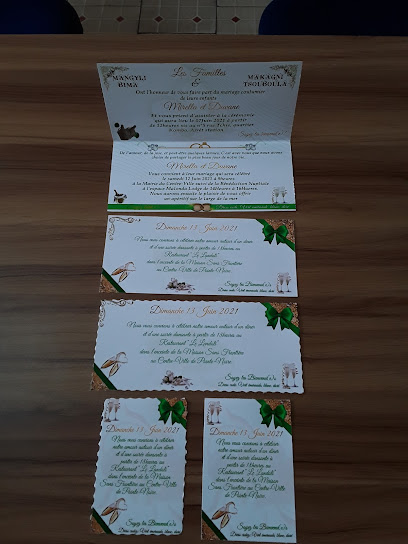
DAREL M
Explore the vibrant DAREL M boutique in Pointe-Noire, where unique Congolese craftsmanship meets a warm shopping experience.

Duchel Skirimani
Experience the soulful rhythms of Duchel Skirimani in Pointe Noire, where Congolese music and culture come alive in unforgettable performances.

L'Atelier Alpha
Explore L'Atelier Alpha in Pointe-Noire for unique, handcrafted gifts that celebrate Congolese culture and artistry.
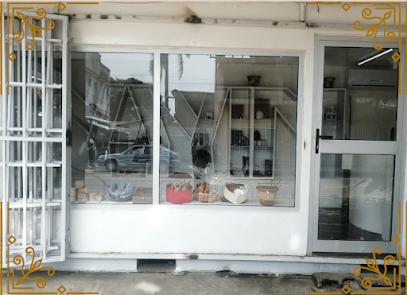
Pâtisserie IMANE
Discover the delightful flavors of Pâtisserie IMANE in Mayumba, where fresh pastries meet local charm in a cozy convenience store setting.

G&M
Visit G&M in Pointe-Noire for an unforgettable shopping experience, blending local culture with contemporary fashion trends.

Maba boutique
Explore Maba Boutique in Pointe-Noire for an exquisite selection of stylish footwear that reflects the vibrant culture of Congo.
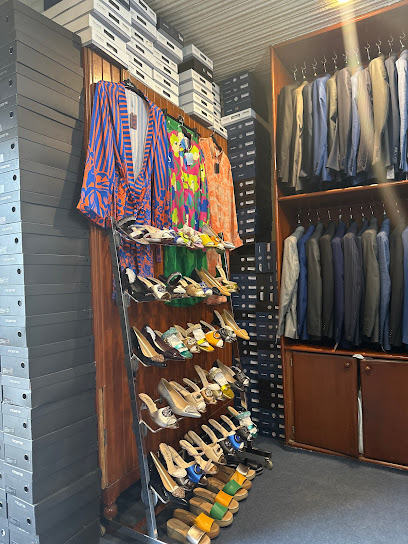
TNT Africa Boutique CDG
Explore the latest electronics at TNT Africa Boutique CDG in Pointe-Noire, your destination for quality gadgets and exceptional service.

Zak boutique
Explore the vibrant fashion scene at Zak Boutique in Pointe-Noire, where style meets culture in an unforgettable shopping experience.

ROY
Explore ROY in Pointe-Noire for a wide range of high-quality auto parts and exceptional customer service as you travel through Congo.

africa handmade Etsy online shop (chez TEIA)
Explore the rich artistry of handmade jewelry at Africa Handmade Etsy Online Shop in Pointe-Noire, a true reflection of Congolese culture.
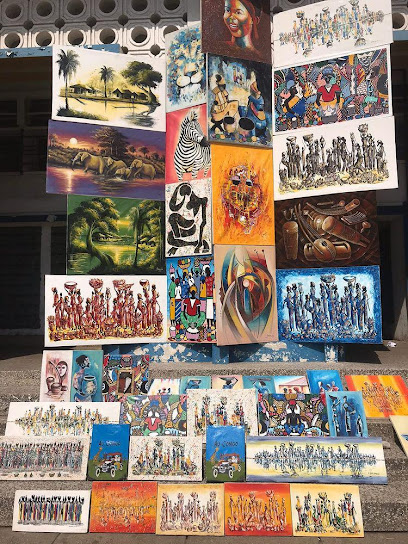
Cookie Boutique
Indulge in the delightful world of artisanal cookies at the Cookie Boutique in Pointe-Noire, where every bite tells a story of local flavors and craftsmanship.

Kéva shopping Gabon
Discover Kéva Shopping Gabon, the ultimate destination for stylish shoes and local fashion in Libreville, perfect for tourists and fashion enthusiasts alike.

BB-Shop
Discover unique outerwear that reflects the vibrant culture of Pointe-Noire at BB-Shop, a must-visit fashion destination in Congo.

Essential bars & hidden hideouts
Lamaia Lounge Bar & Restaurant
Discover the vibrant atmosphere and exquisite flavors at Lamaia Lounge Bar & Restaurant in Libreville, a must-visit for food lovers and socializers alike.
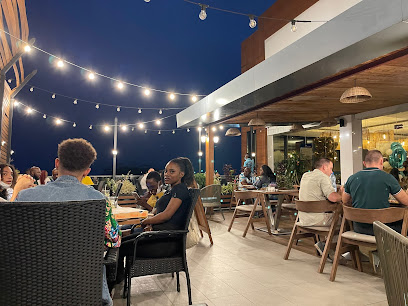
Yoka Sports Bar
Experience the vibrant atmosphere of Yoka Sports Bar in Libreville, where sports, local cuisine, and friendly service come together for an unforgettable night out.
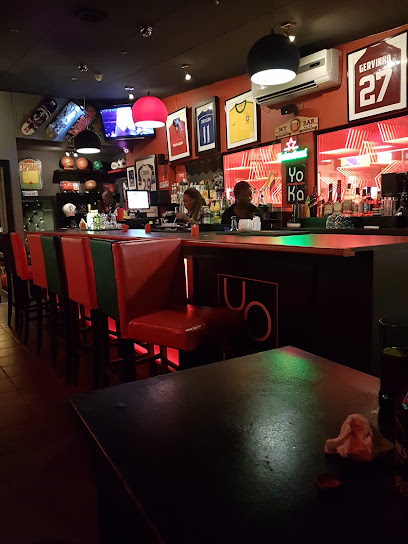
Entre nous Restaurant & Bar
Experience the vibrant flavors and lively ambiance at Entre Nous Restaurant & Bar in Libreville, where local cuisine meets international flair.
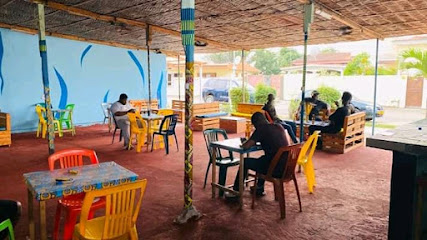
Yoka_Lounge
Discover tranquility at Yoka Lounge in Libreville, where relaxation meets cultural richness in a stylish setting.
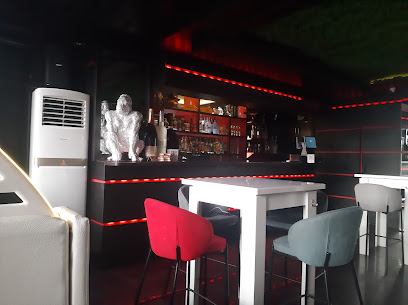
ROYAL TAVERN
Discover the vibrant atmosphere of Royal Tavern, a cozy lounge in Libreville perfect for enjoying drinks and local culture.
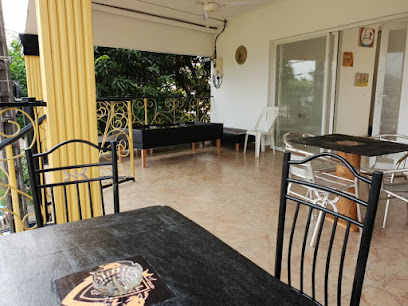
Kas'bar
Discover the vibrant nightlife at Kas'bar, a lively local bar in Pointe-Noire offering refreshing drinks and a friendly atmosphere.
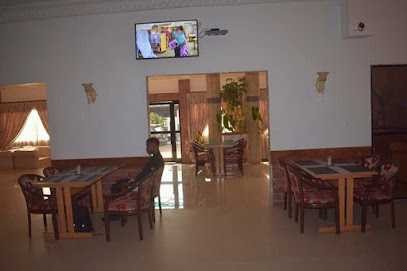
Mont Kamba
Discover the lively atmosphere of Mont Kamba in Pointe-Noire, where local culture meets refreshing drinks for an unforgettable experience.

BAZABI BAR
Discover the lively atmosphere and delicious fast food at Bazabi Bar in Pointe-Noire, a perfect blend of local culture and vibrant nightlife.
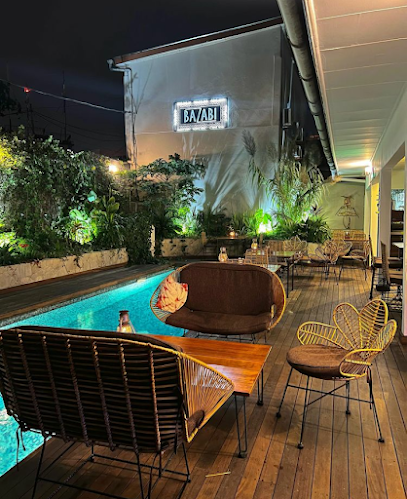
Snack Bar
Discover the vibrant nightlife at Snack Bar in Libreville, where locals and tourists come together to enjoy delicious drinks and lively entertainment.
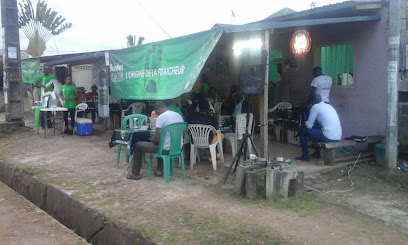
Okoume Chill-Bar Restaurant
Discover the serene atmosphere and delightful menu at Okoume Chill-Bar Restaurant in Libreville, a must-visit culinary retreat for tourists.

TORUS Bar
Discover the lively atmosphere of TORUS Bar in Pointe-Noire, where friendly service and refreshing drinks await every traveler.

Chez Mule
Experience the vibrant nightlife of Pointe-Noire at Chez Mule, where local flavors and live music create unforgettable memories.
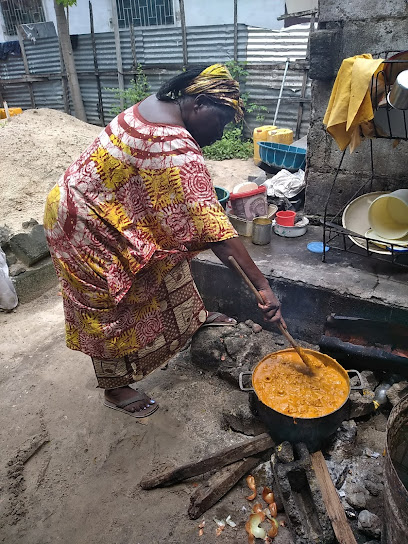
BEST FAMILY GROUP
Discover family-friendly relaxation at the Best Family Group Lounge in Pointe-Noire, Congo, where comfort meets delightful cuisine.

Blu Bar - Libreville
Discover the lively atmosphere of Blu Bar, a must-visit destination in Libreville for refreshing drinks and vibrant nightlife.
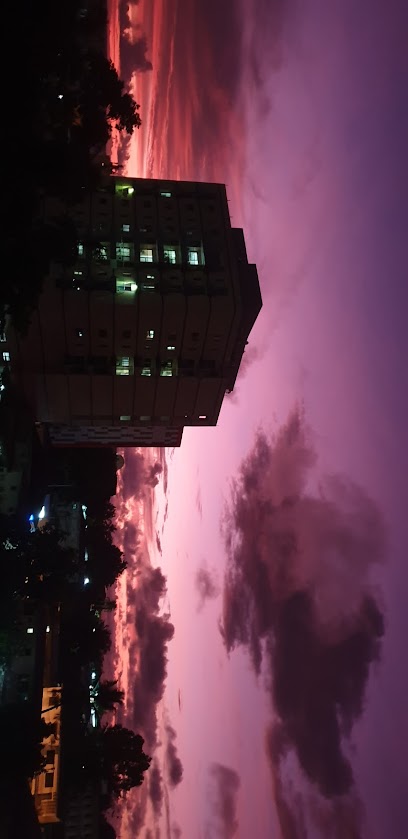
Marjatta’s Bar
Discover the lively spirit of Pointe-Noire at Marjatta's Bar, where locals and tourists come together to enjoy drinks and music in a vibrant atmosphere.

Local Phrases about Mayumba National Park
-
- HelloMbolo
[m-boh-loh] - GoodbyeKwaheri
[kwa-heh-ree] - YesAyé
[ah-yeh] - NoTé
[teh] - Please/You're welcomeMwaramutse
[m-wah-rah-moot-seh] - Thank youUrakoze
[oo-rah-koh-zeh] - Excuse me/SorryMurabeho
[moo-rah-beh-hoh] - How are you?Amakuru?
[ah-mah-koo-roo] - Fine. And you?Ni meza. Wewe?
[nee meh-zah. weh-weh] - Do you speak English?Muvuga ikirundi?
[moo-voo-gah ee-kee-roon-dee] - I don't understandNtazi
[en-tah-zee]
- HelloMbolo
-
- I'd like to see the menu, pleaseNifashishije iyo menu, kubwiye
[nee-fah-shee-shee-zeh ee-yoh meh-noo, koo-bwee-yeh] - I don't eat meatSiyo nindwara ibiryo
[see-yoh neen-dwah-rah ee-bee-ryo] - Cheers!Amahoro!
[ah-mah-hoh-roh] - I would like to pay, pleaseNifuza kugura, kubwiye
[nee-foo-zah koo-goo-rah, koo-bwee-yeh]
- I'd like to see the menu, pleaseNifashishije iyo menu, kubwiye
-
- Help!Umwihariko!
[oom-wee-hah-ree-koh] - Go away!Genda!
[gen-dah] - Call the Police!Sibyara Police!
[see-bya-rah poh-lee-seh] - Call a doctor!Sibyara dokotera!
[see-bya-rah doh-koh-teh-rah] - I'm lostNanongwe
[nah-noh-ngweh] - I'm illNindwara
[neen-dwah-rah]
- Help!Umwihariko!
-
- I'd like to buy...Nifuza kugura...
[nee-foo-zah koo-goo-rah] - I'm just lookingNzikoza
[en-zee-koh-zah] - How much is it?Ni iki cyatumye?
[nee ee-kee chah-too-m-yeh] - That's too expensiveNi cyiza cyane
[nee chee-zah chyah-neh] - Can you lower the price?Wibaze kugura?
[wee-bah-zeh koo-goo-rah]
- I'd like to buy...Nifuza kugura...
-
- What time is it?Saa ngapi?
[sah ngah-pee] - It's one o'clockNi saa ya rimwe
[nee sah yah reem-weh] - Half past (10)Nyeze gukora (10)
[nyeh-zeh goo-koh-rah (10)] - MorningIgisibo
[ee-gee-see-boh] - AfternoonIgitondo
[ee-gee-tohn-doh] - EveningIcyumweru
[ee-choom-weh-roo] - YesterdayEjo
[eh-jo] - TodayEjo
[eh-jo] - TomorrowEjo
[eh-jo] - 1Rimwe
[reem-weh] - 2Kabiri
[kah-bee-ree] - 3Gatatu
[gah-tah-too] - 4Kane
[kah-neh] - 5Gatanu
[gah-tah-noo] - 6Gatandatu
[gah-tahn-dah-too] - 7Karindwi
[kah-reen-dwee] - 8Umunani
[oo-moo-nah-nee] - 9Icyenda
[ee-chee-en-dah] - 10Iri
[ee-ree]
- What time is it?Saa ngapi?
-
- Where's a/the...?Iyi... iri hehe?
[ee-yee ee-ree heh-heh] - What's the address?Iyi ni iki?
[ee-yee nee ee-kee] - Can you show me (on the map)?Wibaze kugira (ku isohoka)?
[wee-bah-zeh koo-gee-rah (koo ee-soh-hoh-kah)] - When's the next (bus)?Iyo isaha iri hehe?
[ee-yoh ee-sah-hah ee-ree heh-heh] - A ticket (to ....)Igicuro (ku ....)
[ee-gee-choo-roh (koo ....)]
- Where's a/the...?Iyi... iri hehe?
History of Mayumba National Park
-
Located in the southwestern corner of Gabon, Mayumba National Park is a pristine coastal sanctuary known for its diverse ecosystems and rich cultural heritage. Established in 2002, the park covers an area of approximately 870 square kilometers, encompassing both marine and terrestrial environments. This unique blend of habitats makes it a haven for wildlife and a treasure trove of historical and cultural significance.
-
Long before the establishment of Mayumba National Park, the area was inhabited by indigenous communities, primarily the Bantu and Pygmy peoples. These communities lived in harmony with the natural environment, relying on fishing, hunting, and agriculture. Their deep knowledge of the land and sea is still evident today, as many of their traditional practices and customs have been passed down through generations.
-
The coastal region of what is now Mayumba National Park was first encountered by European explorers in the late 15th century. Portuguese navigators were among the first to map the coastline, followed by the French in the 19th century. The area became part of French Equatorial Africa, and the influence of European colonial powers left an indelible mark on the region. This period saw the introduction of new trade routes and the establishment of colonial outposts, which played a significant role in shaping the area's modern history.
-
In the late 20th century, growing concerns about environmental degradation and the need to protect Gabon's unique biodiversity led to concerted conservation efforts. The establishment of Mayumba National Park in 2002 was a landmark moment in these efforts. The park was created to safeguard critical habitats for endangered species such as leatherback turtles, humpback whales, and various bird species. It also aimed to preserve the cultural heritage of the indigenous communities that have long called this region home.
-
Mayumba National Park is one of the most important nesting sites for leatherback turtles in the world. Every year, between November and April, thousands of these majestic creatures come ashore to lay their eggs on the park's pristine beaches. The leatherback turtle holds cultural significance for the local communities, symbolizing the deep connection between the people and their natural environment. Conservation programs within the park have been instrumental in protecting these turtles and raising awareness about their plight.
-
The cultural heritage of the communities surrounding Mayumba National Park is rich and diverse. Traditional practices such as fishing, weaving, and music play an integral role in daily life. The park's establishment has provided opportunities to celebrate and preserve these customs. Annual festivals and community events often highlight traditional dances, songs, and crafts, offering visitors a glimpse into the vibrant cultural tapestry of the region.
-
Despite its protected status, Mayumba National Park faces several modern-day challenges, including illegal fishing, poaching, and habitat destruction. However, local communities have become increasingly involved in conservation efforts, working alongside park authorities and international organizations. Community-led initiatives focus on sustainable practices, eco-tourism, and education, ensuring that both the natural environment and cultural heritage are preserved for future generations.
Mayumba National Park Essentials
-
Mayumba National Park is located in the southwestern part of Gabon, near the town of Mayumba. The nearest international airport is Léon-Mba International Airport in Libreville, approximately 700 kilometers away. From Libreville, travelers can take a domestic flight to Gamba, which is the closest airstrip to Mayumba. Alternatively, you can travel by road, but be prepared for a long journey of around 12 to 14 hours. There are also ferry services from Port-Gentil to Mayumba, which offer a scenic but longer travel option.
-
Once in Mayumba, transportation options include local taxis and 4x4 vehicles, which are essential for navigating the park's rugged terrain. It's advisable to hire a local guide who is familiar with the area and its wildlife. For more flexibility, consider renting a car in Libreville or Gamba, but ensure it is a 4x4 vehicle suitable for off-road driving.
-
The official currency in Gabon is the Central African CFA Franc (XAF). While credit cards are accepted in some hotels and restaurants in larger cities, it is advisable to carry cash, especially in remote areas like Mayumba. ATMs are scarce, so withdraw sufficient cash in Libreville or Gamba before traveling to the park.
-
Mayumba National Park is generally safe for tourists, but standard precautions should be taken. Avoid walking alone at night and always be aware of your surroundings. While there are no specific high-crime areas targeting tourists within the park, it's best to stay vigilant. Make sure to follow park guidelines and respect wildlife, maintaining a safe distance at all times.
-
In case of emergency, dial 177 for police assistance and 13 for medical emergencies. The nearest medical facilities are located in Mayumba town, but for serious conditions, you may need to be transported to Libreville. It's highly recommended to have comprehensive travel insurance that covers medical evacuation. Carry a basic first aid kit and any necessary medications, as pharmacies are limited in the area.
-
Fashion: Do wear lightweight, breathable clothing suitable for tropical climates. Long sleeves and pants are recommended to protect against insects. Avoid wearing flashy jewelry. Religion: Do respect local customs and traditions. Dress modestly when visiting religious sites. Public Transport: Do be respectful and courteous to drivers and fellow passengers. Don't expect luxury; local transportation is basic. Greetings: Do greet people with a handshake or a nod. A friendly 'Bonjour' is always appreciated. Eating & Drinking: Do try local dishes such as fish and plantains. Don't drink tap water; always opt for bottled or purified water.
-
To experience Mayumba National Park like a local, consider visiting during the turtle nesting season, from November to March, to witness the incredible spectacle of leatherback turtles laying their eggs. Engage with local fishermen and learn about their traditional practices. Don't miss a boat trip on the Nyanga Lagoon for bird watching and a chance to see hippos and crocodiles up close. Lastly, always take the time to enjoy the stunning sunsets over the Atlantic Ocean.
Nearby Cities to Mayumba National Park
-
Things To Do in Lambaréné
-
Things To Do in Libreville
-
Things To Do in Mbini
-
Things To Do in Angolares
-
Things To Do in Ribeira Afonso
-
Things To Do in Sao Tome City
-
Things To Do in Trindade
-
Things To Do in Guadalupe
-
Things To Do in Bitam
-
Things To Do in Santa Catarina
-
Things To Do in Neves
-
Things To Do in Luanda
-
Things To Do in Santo Antonio
-
Things To Do in Uíge
-
Things To Do in Ebolowa





